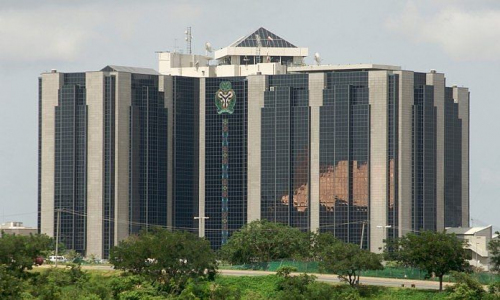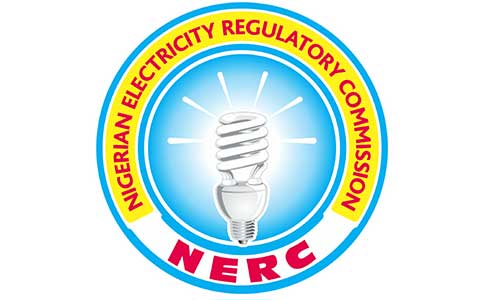SECTOR INSIGHT 09/04/2022
Darkness Nationwide As Power Grid Collapses Again

The nation’s electricity grid crashed again yesterday after the collapse to zero generation and supply recorded in March, which plunged many homes and businesses into total darkness and resultant pains.
The Eko Electricity Distribution Company (EKEDC) disclosed the latest grid collapse yesterday in a mail sent to its customers, saying the collapse happened at 6:30pm leading to outages across its network and that it was working with the Transmission Company of Nigeria (TCN) to resolve the issue.
“Dear Esteemed Customer, A system collapse occurred on the national grid about 6:30 P.M. today (yesterday), leading to outages across our network. We are working with our TCN partners to resolve the issue.
“We sincerely apologise for the inconveniences this may have caused. EKEDC Island District,” EKEDC stated.
Also, the Abuja Electricity Distribution Company said the collapse had resulted in power outage in its area of operation.
“Please be informed that there has just been a national grid collapse causing an outage in our franchise areas.
“We apologise for the inconvenience caused and appeal that you bear with us while we await restoration from the TCN (Transmission Company of Nigeria). We regret all inconvenience caused,” AEDC tweeted.
TCN declined to confirm the development, as its Head of Public Affairs, Ndidi Mbah, refused to take calls put across her mobile lines or reply to text messages sent to her, as at the time of filing this report.
The latest collapse has brought the number of such embarrassing incidents to four in 2022 and in three consecutive months -February, March and April.
The collapse, however, occurred despite the recent showmanship and action without result interventions by the Minister of Power, Abubakar Aliyu, and heads of agencies under his ministry.
The grid collapsed for the first time in 2022 when on February 4, Egbin, Nigeria’s largest thermal power plant suspended generation due to a fire outbreak at the Ikorodu, Lagos plant, leading to the loss of 6.30mw from the grid, according to the TCN.
Also on March 14, the national power grid collapsed again, causing a nationwide outage as the entire system crashed due to the loss of 1,100 megawatts from a 3,700mw peak generation earlier recorded and later crashed to zero generation and supply.
Another collapse also occurred the next day, barely 48 hours, further compounding the situation, especially as it happened at the time the country was thrown into an acute energy crisis with petrol, diesel, gas and aviation fuel going out of the reach of the common man and businesses.
THISDAY had reported at the time that, of the active 25 Gencos on the grid, 19 were producing power as of 6am, when the grid had 3,867.60MW, but that began to reduce gradually until it dropped to 2,761.20MW by 10am after six Gencos went down, leaving just 13, before crashing to zero at 10.40 am.
At least 1,100MW was initially lost from the 3,867MW peak generation before the Gencos started shutting down.
The affected plants included Azura-Edo IPP (Gas), which was generating 447MW earlier, and Shiroro hydropower, which had 300MW earlier and later went off. Trans-Amadi (Gas) lost 92MW, Alaoji NIPP (Gas) lost 75MW, while Ihovbor NIPP (Gas) lost 101MW.
In response to the embarrassing situation, THISDAY had reported that the Minister of Power, Aliyu, had called an emergency meeting then, to resolve all outstanding issues with the stakeholders in the Nigerian Electricity Supply Industry (NESI) as a result of the worsening power situation.
At the meeting attended by delegations from the generation companies (Gencos), TCN, Nigerian Electricity Regulatory Commission (NERC), Nigerian Bulk Electricity Trading (NBET), Niger Delta Power Holding Company (NDPHC), Nigerian National Petroleum Company (NNPC), Shell, and other stakeholders in the power value chain, Aliyu warned that stakeholders must work together to make electricity more stable.
“This meeting was summoned to address the current electricity situation in the country, which we are not happy about. We must find a solution so that Nigerians will have electricity. I want us to have the patience to talk to each other, not blame each other,” a source at the meeting quoted the minister as having said.
He maintained that the Nigerian government would not relent in its effort to ensure that improvements in the power sector were sustained and built upon, adding that current challenges must be addressed.
The meeting, according to the minister, would find solutions that would ensure prompt resolution of all the problems affecting power generation currently besetting Nigeria.
But while the grid collapses keep happening unabated and Nigerians continue suffering the failings of the power sector, the stakeholders have chosen to indulge in blame games rather than being serious about finding solutions to the sector’s perennial problems.
Before the grid collapsed in March, the minister had blamed the low water level at the dams for the worsening power supply in the country.
TCN followed suit, attributing the worsening power situation to low power generation from Gencos.
The Gencos in turn fired back at the time, as their Executive Secretary, Dr Joy Ogaji, blamed the worsening state of power supply in the country on the N1.6 trillion owed them by the federal government since 2013.
Not wanting to be left out in the buck passing galore, NBET on its part disputed the Gencos’ debt claim, saying only companies with active gas supply and transportation contracts were paid for unutilised capacity.



